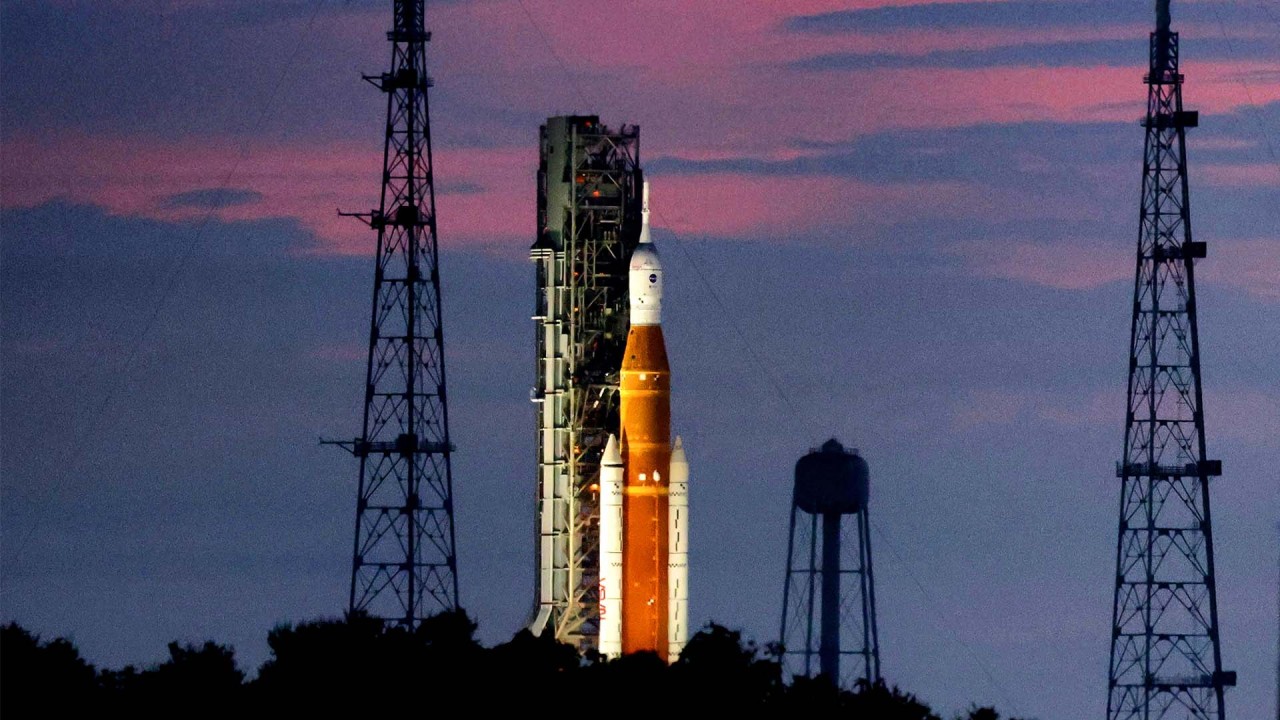Advertisement
Opinion | How US can avoid repeating Cold War space race mistakes with China
- A space race is brewing again 50 years after humans last set foot on the moon amid Cold War conflict
- To get it right this time, the US must avoid great power rivalry, make it greener – with reusable rockets for a start – and keep it a purely scientific endeavour
Reading Time:4 minutes
Why you can trust SCMP
3

Is 50 still considered old? The answer might seem obvious to some, but it’s increasingly less clear in an era of broadly improving longevity in which 40, 50 and even 60 have been described as “the new 30”.
This bit of temporal confusion arose because Nasa added to the feeling of everything old being new again by taking the first steps in its return to the moon. The Artemis programme was set to take flight on Saturday with the Orion spacecraft and Space Launch System (SLS) rocket, the first of a series of missions to establish a long-term human presence on the moon. The launch was delayed twice over a fuel leak before being postponed until later this month.
As of December 14 – the anniversary of the Apollo 17 astronauts leaving the moon in 1972 – you’ll need to be 50 to have been alive the last time humans set foot on the moon or even went beyond low-Earth orbit. It’s hard not to feel what Yogi Berra called “déjà vu all over again” because Nasa retracing the Apollo programme’s steps fits with the rhetoric around the so-called new cold war.
A new space race between China and the United States is both exciting and worrying. It’s exciting – especially to space nerds like me – because space exploration has been an afterthought since the Cold War ended, and that is to our detriment. Our human need to explore, understand and inspire didn’t end with the fall of the Soviet Union. It’s also exciting because it’s damn cool. How else would you describe launching a 32-storey, 26 million kg building into lunar orbit with explosions?
It’s worrying because, while I’m nine years short of 50, I’m old enough to see some bad old habits returning. Political patronage has steered the Artemis programme off its optimal course. US policymaking is increasingly framed in competition with China, with even small countries tipping into Beijing’s orbit treated as a threat to freedom and democracy everywhere. If we must have a Space Race 2.0, let’s do it right instead of as an elaborate geopolitical flex.
Ideally, we’d start this chapter united as a species with China as part of the team. I grew up in a Star Trek household, and I still hold a Roddenberrian belief in humanity’s ability to transcend political boundaries as we reach for the stars. This is despite all evidence, even in just the past 15 years, that even moderate social progress will meet swift, organised and often violent backlash.
Advertisement

